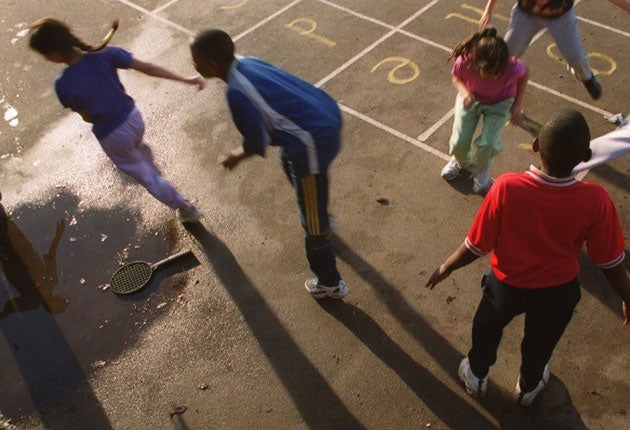Hands-on parenting: Big mother is watching you
What do your children do all day? A new device can tell you – but it takes hands-on parenting to the extreme, says Jonathan Brown

It is a feeling familiar to any parent. After a morning spent wrestling, coaxing, threatening and generally doing battle with the little cherubs, you finally drop them off at the nursery/crèche/school into the competent hands of a professional carer while you slip off gratefully to the office. That sense of release from responsibility might be tinged with a little guilt but basically most of us are happy to let them go into what we believe to be a safe and properly regulated environment. Or are we?
For those of a suspicious, controlling or merely extraordinarily devoted nature, a new device could soon allow you to keep a remote eye on your little darling even when you are allegedly hard at work. An experiment currently under way in Japan allows full-time working parents to monitor nearly every aspect of their child's well-being when they are out of their care. Not only are those taking part in the trial able to tell the exact location of their child but a camera linked to a discreet heart monitor will take a picture of what their youngster is seeing should their pulse rise to a level indicating they might be under stress. All the data from the gyroscopic accelerometer, GPS receiver and digital compass is made available though a password-protected website containing live updates of the child's day – complete with pictures. Emitting a hundredth of the electromagnetic waves of a mobile phone, the signal is picked up by 30 relay points and 18 transmitters around a space such as a nursery or classroom.
Seung-Hee Lee of the University of Tsukuba which has pioneered the brightly coloured child safety device currently being tested, believes it could retail for as little as £400 and might guard against dangers such as bullying, which can affect a child for life. Even in cultures such as Europe and the US where privacy issues are likely to surface, she believes parents will be convinced of the system's advantages. "I'm a mother and I'd say that if it's a parent's choice between a child's privacy and keeping them safe, most would choose the latter," the researcher told New Scientist. Future designs could even incorporate a microphone to listen in to conversations.
The future is here. Few young people could live without that ubiquitous tracking device, the mobile phone, and who would bet against parents being persuaded that extra information to locate errant youngsters could further ease their anxiety?
The new device is just the latest example of technology capturing for posterity what we once thought of as fleeting moments. Microsoft's SenseCam has been under development for more than a decade. It records images from a wearer's everyday life building a comprehensive gallery of up to 2,000 jpg files a day, helping researchers treating dementia patients but also fuelling the phenomenon of life blogging – people sharing their entire existence. Last year Microsoft licensed the technology to Vicon, which unveiled its new Revue life-blogging camera. It fires off an image – no matter how mundane – every 30 seconds and is on sale for £500. For £39.99, one can spy on what a pet gets up to when it is home alone. The Pet's Eye View camera stores 40 snaps a day timed for five, 10 or 15-minute intervals and enables doggy lovers to discover who is scratching the sofa.
Subscribe to Independent Premium to bookmark this article
Want to bookmark your favourite articles and stories to read or reference later? Start your Independent Premium subscription today.

Join our commenting forum
Join thought-provoking conversations, follow other Independent readers and see their replies